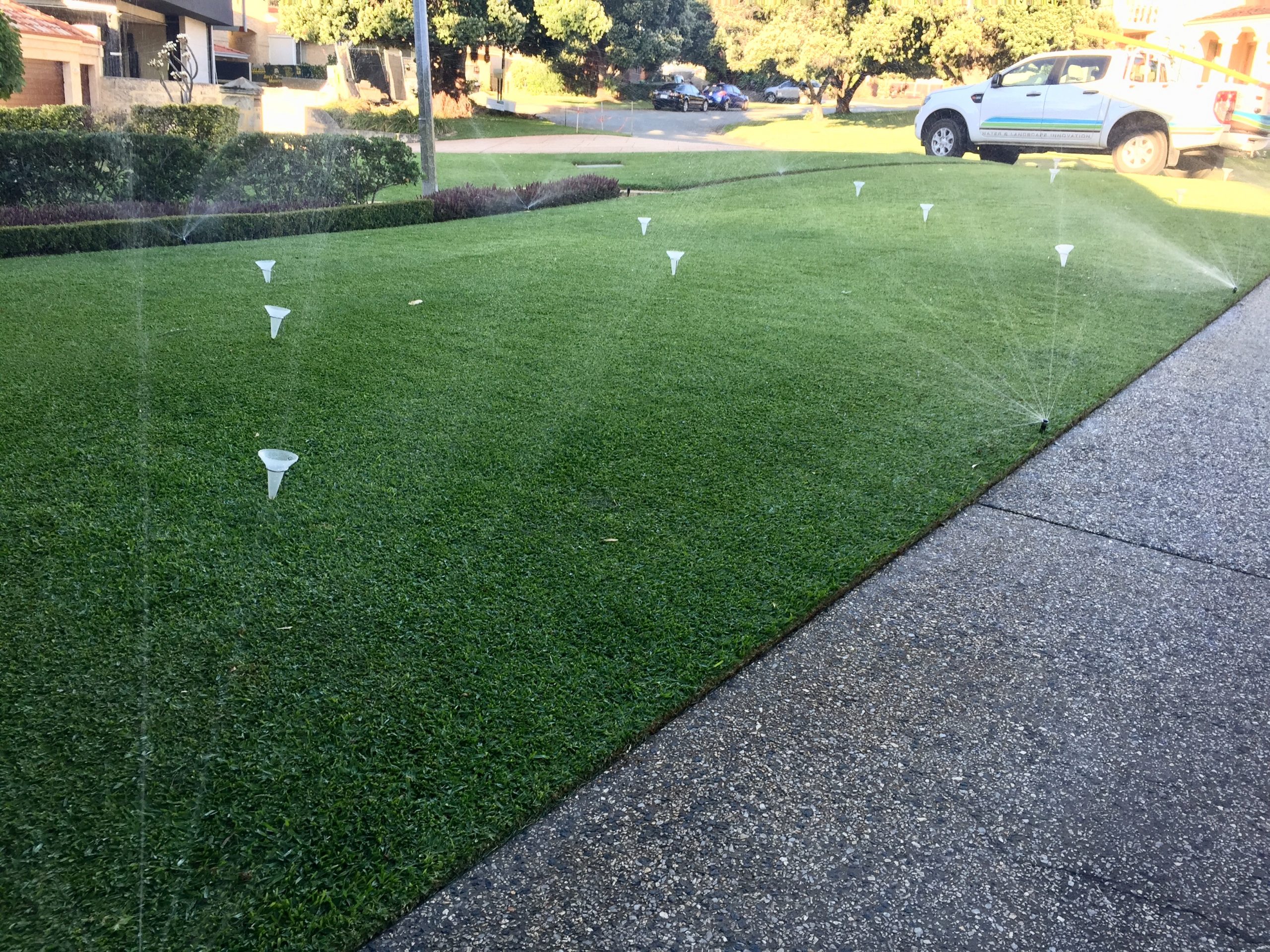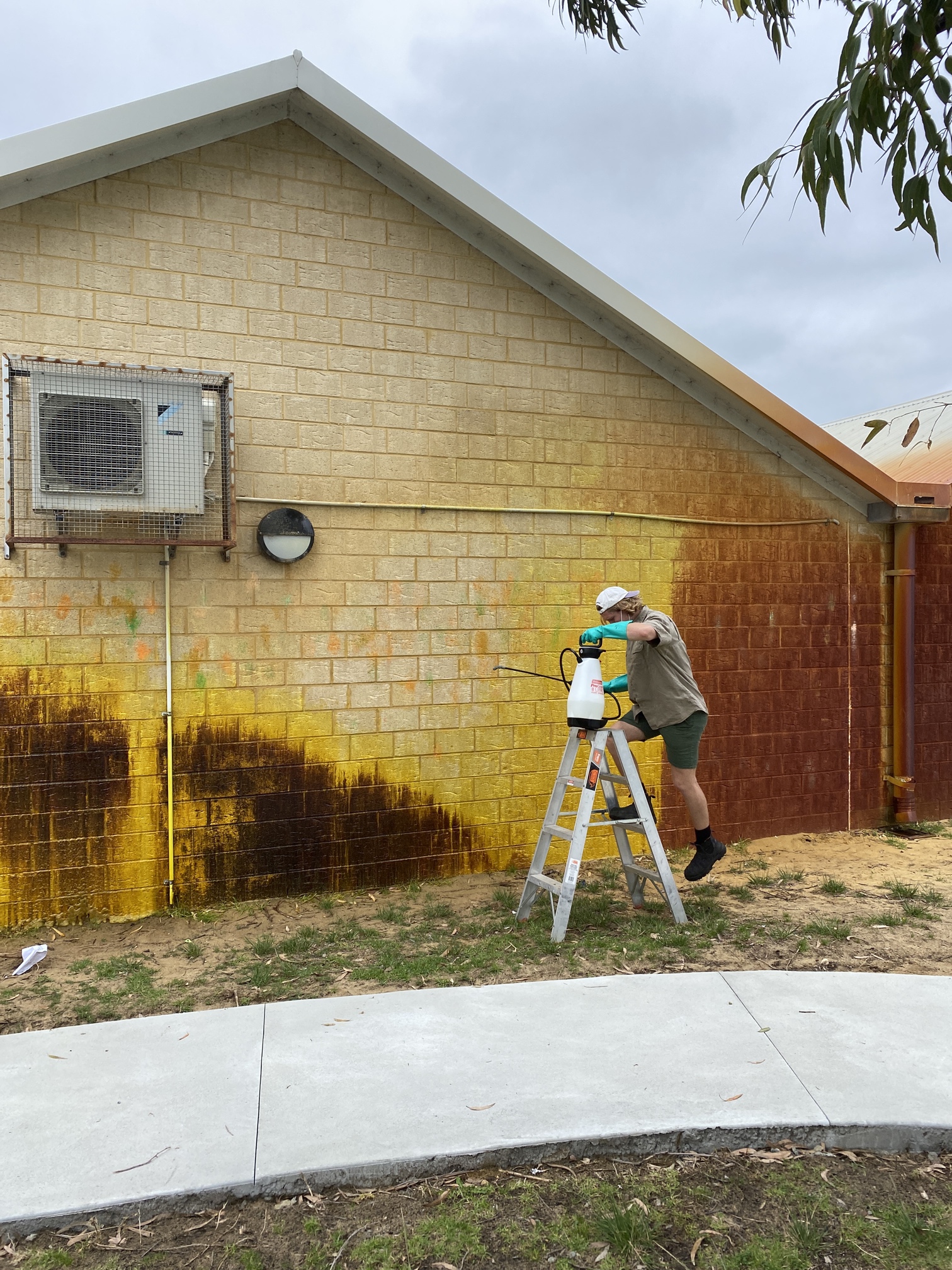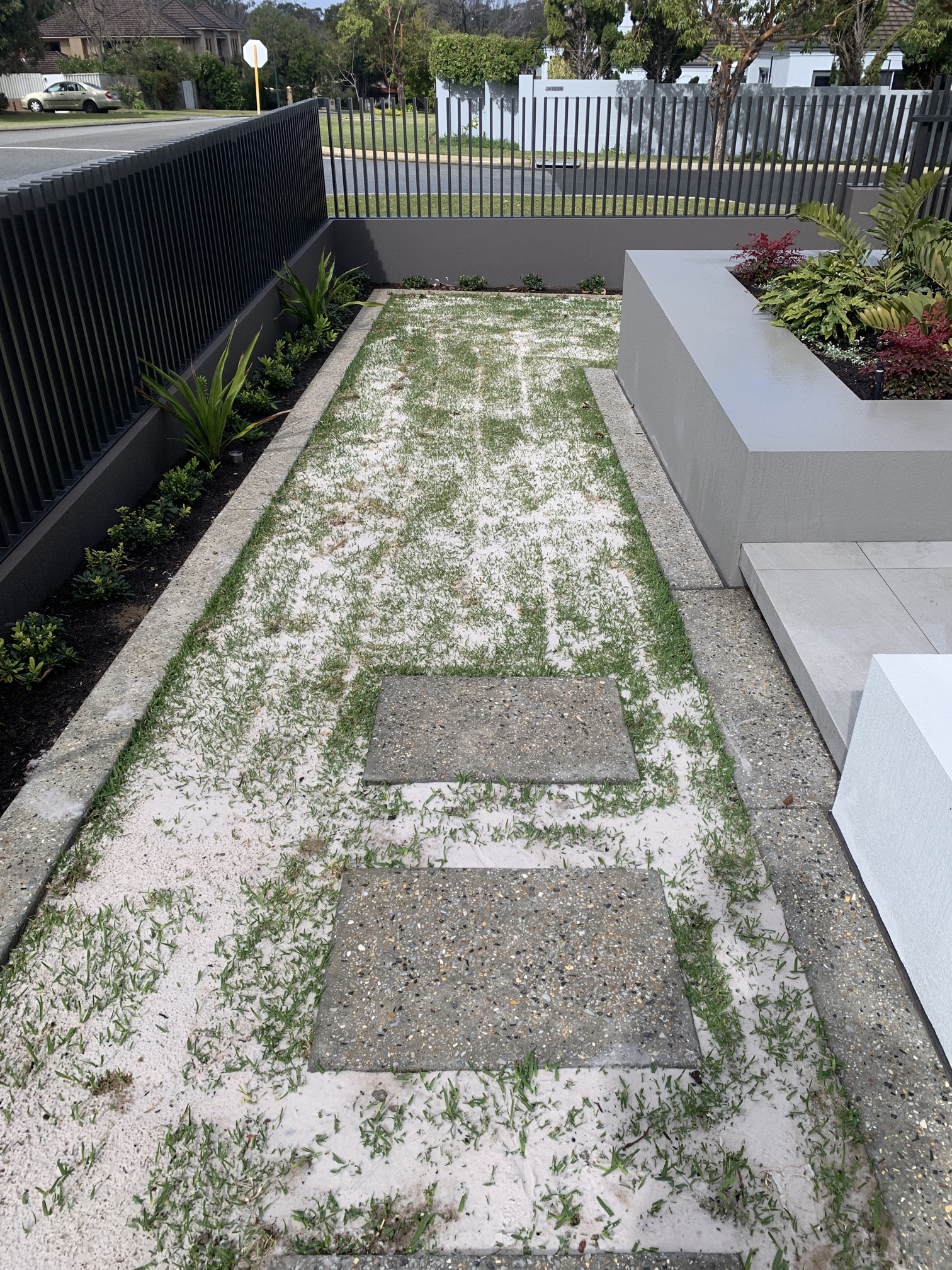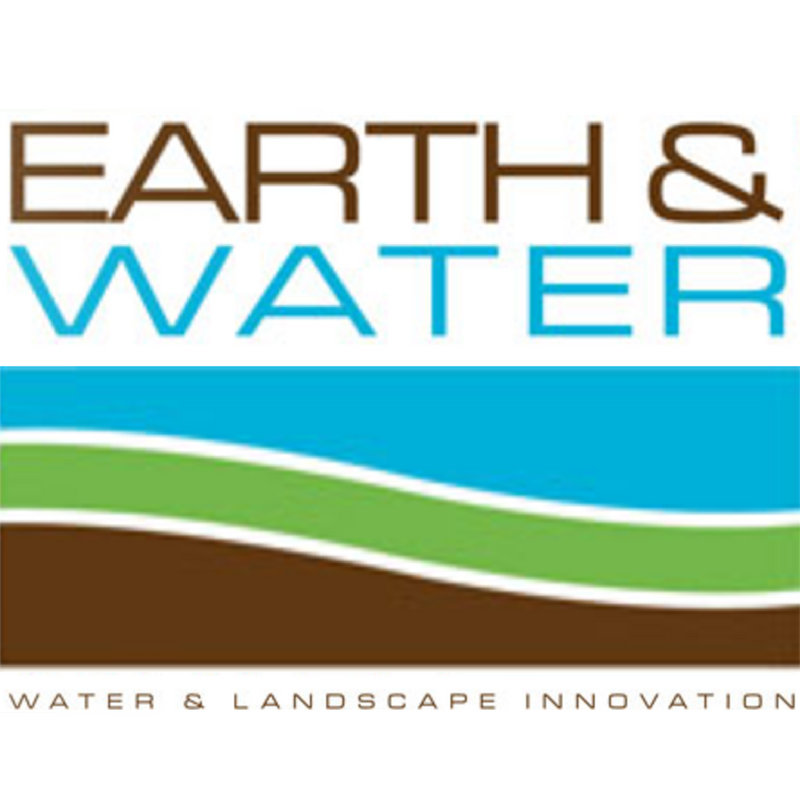Perth’s Best Iron Stain Removal – How to get rid of it now and stop it coming back!
What is going on?
Iron staining is the dirty brown and orange staining that damages buildings, paving and walls.
It comes from our groundwater where minerals reign free in our underground unconfined acquifiers. There are some suburbs that have elevated levels of iron in deposits underground.
Iron staining occurs when it mixes with air and oxidises into the deep earthy colours you see across Perth. Calcium is a key mineral because it binds to the iron and together they accumulate.
So where iron and calcium exist in high levels in your ground water and people use bores to irrigate, there will always be an iron staining problem.
Can we fix it?
Yes.
See how below.
How to get rid of iron stain:
We have a three step process to get rid of iron stains.
- Apply iron stain removal solution
- Scrub stained area
- Rinse off with fresh water
It is a straight forward process of breaking down the calcified minerals, iron and calcium by applying a strong acid. The acid we use is formulated specifically for Perth’s iron staining problem.
Rinse & Repeat
If a stain has been allowed to accumulate for several years, it becomes harder to remove. On especially porous surfaces – such as limestone and old bricks, the iron will be deeply ingrained and a single application of stain removal solution will not be enough.
For deeply ingrained surfaces it takes longer and more coats to remove the stains.

Stop Iron Staining from Coming back
Short Term
Some suburbs like Mt Pleasant, Mt Claremont, Joondalup and Woodvale have extremely high levels of iron.
We can remove the existing iron stain but it will quickly return if the untreated bore water continues to coat surfaces with minerals.
Long Term
There are three ways to stop iron staining from coming back.
- Switching Back to Mains Scheme Water
- Replace sprinklers with subsurface irrigation
- Install a bore water treatment system
Each has its Pros and Cons outlined below.

1. Switching Back to Mains Scheme Water
The primary reason people use residential bores is to give their gardens an extra day of watering per week.
Bores can be used three times a week.
This extra day of watering can be the difference between having a successful, healthy garden and a garden struggling in a water deficient environment.
This is difference between having a green lawn in summer and a dead one.
Scheme water has already been treated and does not have high concentratios of iron and will not cause iron staining.
2. Replace sprinklers with subsurface irrigation
Iron and calcium only stain when they are sprayed onto surfaces or allowed to leak for long periods.
Subsurface irrigation is the most efficient way to irrigate residential gardens and lawns. It is also the best way to apply fertilisers when combined with a fertigation venturi for soluble/liquid fertilisers.
Water and fertiliser is sent directly to root systems where it cannot evaporate.
Any minerals in your bore water, will never stain your property. However we always recommend pairing this subsurface solution with a water conditioner because it will improve nutrient uptake in your flora.
3. Install a bore water treatment system
By installing a bore water treatment system you can use your bore water for anything.
Hot spot suburbs for iron staining can have as much as 8 milligrams per litre of bore water. This causes immediate, dark staining.
Our goal is to reduce iron to a desire level of 0.05 mg/litre. This is equivalent to removing 99% of iron in your bore water.
It is never possible to remove 100% of your iron but you can reduce it to neglible levels.
At this level of concentration there will be a yellow sheen built up over several years that is easily removed.
Prior to any design work we always do site consult ($190) and take bore water samples for external laboratory analysis ($220). This way we know exactly what system is best for you.
Enquiry Form - 24 hr response
Please complete the form below to help us immediately start on your problem or situation.
If you would like a call from a water treatment specialist, please include your contact number and indicate so in the comments section.














